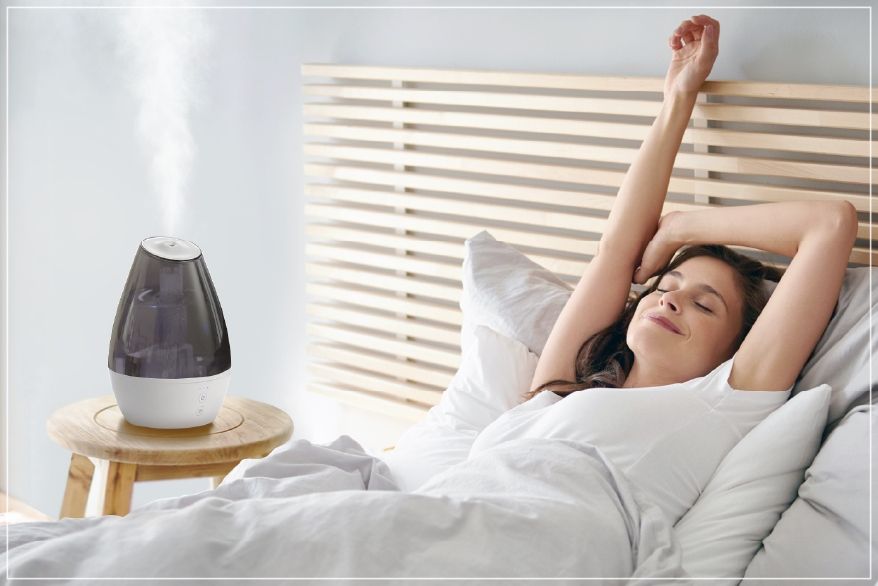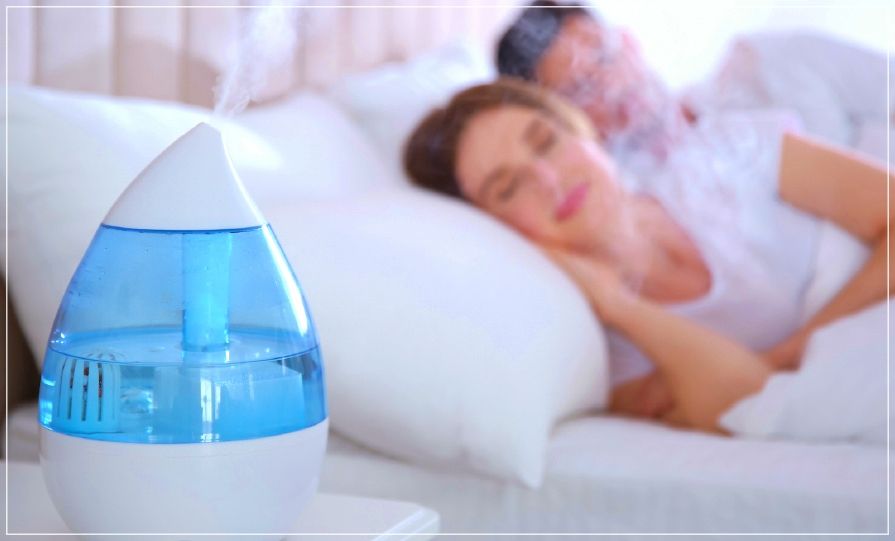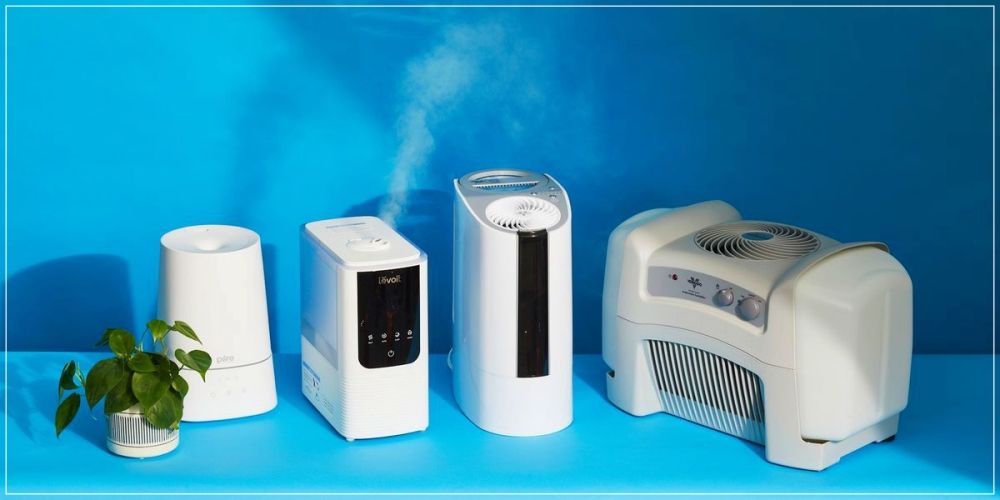Many people struggle with getting a good night’s sleep. Whether it’s due to stress, anxiety, or physical discomfort, a lack of rest can have a significant impact on our daily lives. However, there are some simple solutions that can help improve the quality of our sleep, and one of them is sleeping with a humidifier.
Humidifiers work by adding moisture to the air, which can help alleviate dry skin, sinus congestion, and other respiratory issues. In addition to these physical benefits, sleeping with a humidifier can also help us sleep more soundly. When the air is too dry, our bodies can become dehydrated, which can lead to dry mouth, snoring, and other sleep disruptions. By adding moisture to the air, we can reduce these symptoms and create a more comfortable sleeping environment.

Overall, sleeping with a humidifier can be a simple and effective way to improve the quality of our sleep. Whether you’re dealing with a dry climate, seasonal allergies, or just looking for a way to sleep more comfortably, a humidifier can be a valuable addition to your bedtime routine. So if you’re struggling to sleep, consider investing in a humidifier and see how it can benefit you.
Benefits of Sleeping with a Humidifier – Understanding Humidifier
What is a Humidifier?
We all know that the air around us is not always the same. It can be dry or humid depending on the weather and other factors. A humidifier is a device that helps increase the humidity in the air by adding moisture to it. It can be a standalone device or can be integrated into an HVAC system.
How Does a Humidifier Work?
Humidifiers work by adding moisture to the air in different ways. Some humidifiers use a fan to blow air through a wet wick or filter, while others use ultrasonic vibrations to create a fine mist of water droplets that are then dispersed into the air. Regardless of the method, the goal is to increase the humidity level in the air to a comfortable and healthy range.
Why Use a Humidifier?
Using a humidifier can offer several benefits, including:
- Relief from dry skin and lips
- Reduced snoring and better sleep quality
- Relief from sinus congestion and allergies
- Prevention of dry throat and coughing
- Protection of wood furniture and floors from cracking
In addition to these benefits, using a humidifier can also help prevent the spread of viruses and bacteria in the air, which can be especially beneficial during cold and flu season. Overall, using a humidifier can help improve the quality of the air we breathe and make our homes more comfortable and healthy places to be.

Benefits of Sleeping with a Humidifier
Improved Sleep Quality
Sleeping with a humidifier can help improve the quality of our sleep. When the air is too dry, we may experience discomfort such as dry throat, stuffy nose, and itchy skin. These discomforts can disrupt our sleep and cause us to wake up feeling tired and groggy. By adding moisture to the air, a humidifier can help alleviate these discomforts and create a more comfortable sleeping environment. This can lead to a more restful and rejuvenating sleep, allowing us to wake up feeling refreshed and energized.
Relief from Allergies and Asthma
A humidifier can also provide relief for those who suffer from allergies and asthma. Dry air can exacerbate allergy and asthma symptoms such as coughing, wheezing, and congestion. By adding moisture to the air, a humidifier can help soothe these symptoms and make it easier to breathe. This can lead to a more comfortable and restful sleep, allowing us to wake up feeling more alert and refreshed.
Prevention of Dry Skin and Lips
Dry air can cause our skin and lips to become dry and cracked. This can be uncomfortable and unsightly, and can even lead to infections. By adding moisture to the air, a humidifier can help prevent dry skin and lips, keeping them soft and supple. This can lead to a more comfortable and confident sleep, allowing us to wake up feeling refreshed and ready to take on the day.
Choosing the Right Humidifier
When it comes to choosing a humidifier, there are a few things to consider:
First, you should decide what type of humidifier you want. There are cool mist humidifiers, warm mist humidifiers, ultrasonic humidifiers, and evaporative humidifiers. Each type has its own set of benefits and drawbacks, so it’s important to do your research and choose the one that will work best for you.
Next, you’ll want to consider the size of the humidifier. If you’re only planning on using it in your bedroom, a smaller unit will suffice. However, if you want to use it in a larger room, you’ll need a larger humidifier. Be sure to check the square footage that the humidifier can cover before making a purchase.
Finally, you’ll want to think about the features you want in a humidifier. Some humidifiers come with built-in air purifiers or aromatherapy diffusers, while others have automatic shut-off features or adjustable humidity settings. Consider your needs and preferences when choosing a humidifier.

Maintenance and Cleaning Tips
To keep your humidifier working properly, it’s important to clean and maintain it regularly. Here are a few tips to help you do just that:
– Follow the manufacturer’s instructions for cleaning and maintenance.
– Use distilled water instead of tap water to prevent mineral buildup.
– Change the water in the humidifier daily to prevent bacteria growth.
– Clean the humidifier with a mild detergent and water at least once a week.
– Replace the filter or wick as needed.
Precautions and Safety Measures
While using a humidifier can be beneficial, it’s important to take precautions to ensure your safety. Here are a few things to keep in mind:
– Don’t leave the humidifier running unattended.
– Keep the humidifier out of reach of children and pets.
– Use the humidifier in a well-ventilated area to prevent mold growth.
– Don’t use essential oils in the humidifier unless it’s specifically designed for that purpose.
– If you experience any adverse effects from using a humidifier, stop using it and consult a healthcare professional.
That’s it for our guide to choosing, cleaning, and using a humidifier safely. We hope this information has been helpful in your quest for a better night’s sleep.
Leave a Reply